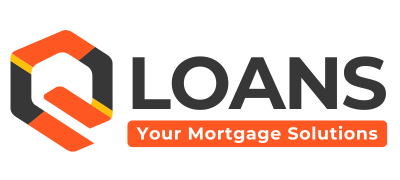
Can I combine credit card debt, home loan, and car loan to lower my overall repayments?
⚡ Yes. Refinance to consolidate your debts.
01
Lower Interest Rates
Refinancing can help you lock in a lower interest rate, which can reduce your monthly mortgage payments and save you money over the life of the loan.
02
Shorten Loan Term
Switching from a 30-year mortgage to a 15-year mortgage can help you pay off your home faster and save on interest payments
03
Access Home Equity
Cash-out refinancing allows you to tap into the equity you’ve built in your home to fund home improvements, pay off debt, or cover other expenses.
04
DEBT CONSOLIDATION
Refinancing can be used to consolidate higher-interest debt, such as credit cards or personal loans, into your mortgage, potentially lowering your overall interest payments and simplifying your finances.

Why work with QLoans.au?
We understand the complexities of securing a loan that aligns with your financial and property goals.
Who we are
We’re mortgage solution-ist.
✓
We make it our mission to share the journey with you.
✓
We present interest rates and loan terms most favourable to your financial situations.
✓
Talk to Natalee – Let’s get your loan sorted!
What we do
We manage your loan approval.
✓
Personalised advice and support from the initial consultation to post-settlement.
✓
Competitive rates from over 88 lenders.
✓
Flexible consultation options through phone and online video at a time that suits your schedule.
✓
A comprehensive financial review to determine the most suitable loan structure within your borrowing capacity.
Why use our service
We resolve your concerns.
✓
Poor credit score
✓
Income instability
✓
Insufficient savings
✓
No deposit
✓
High debt levels
✓
Soaring property prices
✓
Clash of location and budget
✓
Complex application process

Why use the service of a mortgage broker?
As your mortgage broker, Natalee at QLoans.au helps you find the best loan options by leveraging access to multiple lenders and personalised service, saving you time and effort.
Golden nuggets on the topic [FAQs]
What is refinancing?
Refinancing is when you get a new loan to repay your old home loan.
You can do this with your current bank or a different one. It’s smart to look at your current home loan before refinancing if you want a lower interest rate.
This is especially true now because some banks offer cashback and waive application fees if you refinance.
What is debt consolidation?
Debt consolidation allows you to combine your existing debts into your mortgage. This can be beneficial if your mortgage interest rate is lower than your other loans, as your home becomes security for the loan.
You’ll then make one monthly repayment to cover all your consolidated debts. This simplifies managing multiple loans and can help you avoid falling behind on repayments, potentially preventing the need for a debt agreement.
Generally, the debts you want to consolidate into your home loan are high-interest rate unsecured debts such as:
• Credit cards
• Personal loans
• Car loans
• ATO tax debts
• Buy now pay later services such as AfterPay.
What are the benefits of refinancing my home loan?
• Get a cheaper interest rate and lower your monthly repayments.
• Access equity to buy an investment property, renovate, build and more.
• Bring your high-interest debts like credit cards, personal loans and car loans into a debt consolidation home loan.
• Save your home if your home loan is in arrears.
• Refinance from a specialist lender to a major lender after you’re past your bad-credit issues.
• Take advantage of tax benefits.
• Refinance to a home loan product that helps you repay your home loan faster.
• Refinance to grow your business.
How much can I save by refinancing?
The amount you can save by refinancing depends on various factors, such as your current interest rate, the new interest rate you qualify for, the remaining term of your loan, and any associated fees.
You can use our home loan refinance calculator to find out how much you can save by refinancing.
Should I and how do I refinance from Low Doc to Full Doc?
Yes you should. While there are lenders that can help, they charge higher interest rates because of the risk they are taking on board. So when you are able to provide full income evidence this would represent a lower risk which means you can qualify with more lenders at a much cheaper rate and have access to more products.
What documents do you need to provide for a full doc loan?
• Your last two years’ financial statements (profit and loss and balance sheet).
• Your last two years’ business tax returns.
• Your last two years’ personal tax returns.
• Your last two years’ notices of assessment.
• Your 6 months home loan statements.
How much equity is needed to refinance?
Generally, you need at least 20% total equity in your home to refinance the loan. Lenders typically let you borrow a maximum of 80% of your property’s value on a standard mortgage so most homeowners begin with enough total equity to refinance.
Some lenders will let you borrow up to 95% of your property value if you pay Lenders Mortgage Insurance (LMI) or if you have a particularly impressive credit score.
If you have less than 20% total equity in your home, you may still be able to refinance but you may have to pay LMI again.
Am I eligible to refinance?
• You owe less than 80% of the property value: Ideally, you should owe less than 80% on your mortgage; otherwise, you may have to pay thousands in Lenders Mortgage Insurance (LMI).
• You are on variable rate: Variable-rate loans offer more flexibility when refinancing, allowing you to avoid exit fees associated with fixed-rate loans.
• You can refinance out of a bad credit loan: You can refinance a bad-credit home loan to a major lender if your Loan-To-Value Ratio is 80% or less and there is no longer a default on your credit file.
• You can refinance from a low-doc to a full-doc: If you had a low-doc mortgage but now have sufficient income evidence, you may qualify for a standard home loan at a better interest rate.
What are the costs involved in refinancing?
Refinancing costs vary, but they range between $900 and $3,500. The costs can include discharge fees, break fees, application fees, valuation fees and title search fees. Some of these can be added to your new loan amount so that you don’t have to pay them out of pocket.
Closing Costs
• Break cost: If you leave your fixed home loan early, your lender may charge you a break fee. This covers potential losses the lender might experience because of your early exit. Each lender has its own way of calculating break cost, depending on various factors like your fixed-rate term remaining, interest rate, and repayment amount. For an estimate, you can use our break cost calculator .
• Discharge fee: Your existing lender may charge you a fee to exit the mortgage. The discharge fee typically covers administrative costs associated with terminating the existing mortgage agreement, such as paperwork, processing and lien release. The amount will depend on the lender.
New Loan Costs – Not all banks charge all these fees!
• Mortgage registration fee: Your new and existing bank may charge to register and deregister your mortgage, respectively. The fee charged varies accross states.
• Application fee: The lender charges this fee to cover the costs of processing your new application.
• Refinance Settlement fee: This is applied to cover the administrative and legal expenses related to finalising the refinancing process.
• Property valuation fee: This can vary according to property type and location. The new lender will charge around $300 to $600 to have your property valued, but we can order a free upfront valuation on your behalf.
• Title search fee: The new bank will run a title registry search to check for any liens, easements, or other encumbrances on the property’s title, ensuring that the buyer is getting a clear title to the property.
Play Video
What do I need to know before I refinance?
• Be clear on why you want to refinance. It may not always be to get a lower rate, but to get a more flexible loan or even to access equity for a renovation.
• Consider your future plans and think about your long-term financial goals. Think about how refinancing fits into your overall financial strategy.
• Evaluate your current financial status, including income, expenses and credit score, to determine your eligibility and the potential impact on your finances.
• Research various lenders and loan options to find the best fit for your needs. Consider factors such as interest rates, fees and repayment terms. This is when the services of a trusted mortgage broker like Home Loan Experts will be helpful.
• Determine the total cost of refinancing, including fees and closing costs, and compare it with the potential savings over time to ensure it’s financially beneficial.
Property purchasing costs
• Minimum of 5% deposit
• Stamp duty
• Property title transfer fee
• Registration fees
• Conveyancing fees
• Inspections including building/strata and pest
• Home loan set up fees
• Lenders Mortgage Insurance (LMI)
Property selling costs
• Agent Fees
• Marketing Costs
• Conveyancing Fees
• Capital Gains Tax (CGT)
• Presale Repairs and Renovations
• Styling/ Home Staging
• Auctioneer’s Fees
• Lender Fees
• Moving Costs
Need a mortgage consultation?
We’re here to provide you with the latest updates & solutions.
Natalee Q
+61 426 224 229
Natalee@QLoans.au
Australia Wide
Meet virtually
Apply digitally
Approved Swiftly
Mon to Sat: 8am – 6pm
Discover Mortgage 101 on our YouTube channel to debunk mortgage misconceptions.
Explore mortgage insights and pave your path to financial freedom sooner with essential tips from our eBook collection.
Crunching numbers just got easier with our online calculators. However, if you prefer your mortgage broker to do the math, give Natalee a call at 0426 224 229.

